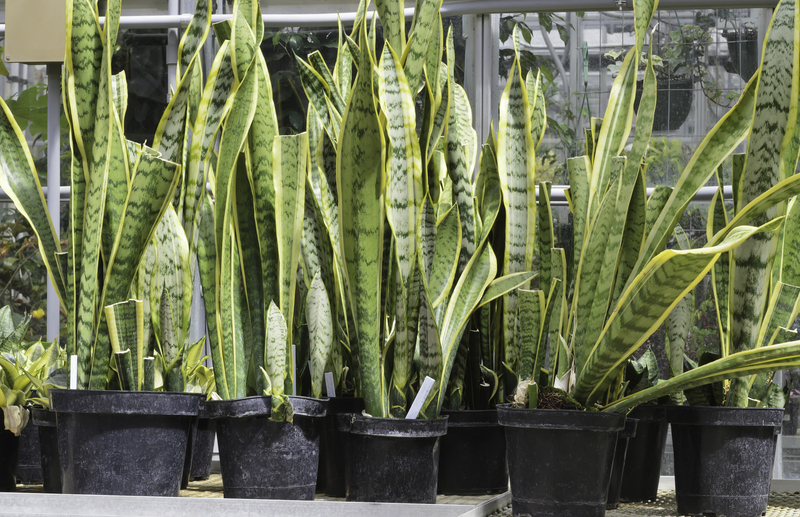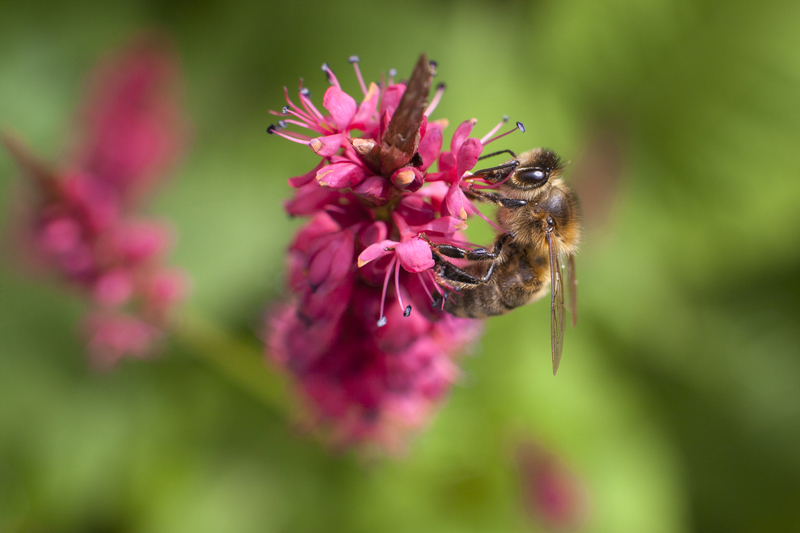Unlock the Potential of Herb Gardens
Posted on 05/06/2025
Unlock the Potential of Herb Gardens: Your Complete Guide
Imagine stepping outside your door to harvest a pinch of fresh basil, a sprig of mint, or aromatic rosemary leaves in just seconds. Herb gardens, whether flourishing on a sunny windowsill or sprawling in your backyard, are vibrant, practical, and surprisingly easy to maintain. This comprehensive guide takes you through the ins and outs of herb gardening, revealing how you can unlock the potential of herb gardens, enjoy the freshest flavors, and enhance your lifestyle.

Why Choose a Herb Garden?
Herb gardens offer an array of benefits to novice gardeners and seasoned green thumbs alike. From culinary uses to medicinal advantages and environmental contributions, these compact plots punch well above their weight.
Culinary Delights
- Freshness at Hand: Nothing beats the flavor of freshly picked herbs. Grow basil, thyme, and oregano for Italian dinners or cilantro and mint for international cuisines. Having herbs on hand allows you to experiment and elevate everyday dishes.
- Cost-effective Cooking: Buying supermarket herbs can be expensive and wasteful. A home herb garden saves money while providing continuous supply throughout the year.
- Healthier Cooking: Homegrown herbs encourage healthy, flavorful, low-sodium meals. Use them to reduce reliance on salt and other less healthy flavorings.
Medicinal & Aromatic Benefits
- Natural Remedies: Many herbs have ancient reputations for healing. Chamomile can calm nerves, peppermint aids digestion, and lavender soothes headaches.
- Stress Relief: The act of gardening itself reduces anxiety, and the soothing aroma of many herbs (like lavender and lemongrass) adds a relaxing atmosphere to your home or garden.
Environmental Impact
- Promoting Biodiversity: Herb gardens attract pollinators--bees, butterflies, birds--creating a thriving ecosystem in your backyard or on balconies.
- Sustainable Living: Reducing food miles and waste, home-grown herbs are an eco-friendly way to enhance your meals.
Choosing the Right Herbs for Your Garden
The first step to unlocking the full potential of herb gardens is selecting the right plants for your needs and environment. Not all herbs require the same level of care. Consider your climate, available space, and culinary preferences.
Essential Herbs for Beginners
- Basil: Thrives in warm, sunny spots. Delicious in salads, soups, and Italian dishes.
- Mint: Prolific and easy to grow. Perfect for drinks, desserts, and savory recipes. Best contained in pots to avoid spreading.
- Rosemary: Hardy and aromatic, great with meats and roasted vegetables.
- Parsley: Versatile for garnishing and flavoring many dishes.
- Chives: Adds a mild onion flavor and is simple to grow on windowsills.
Herbs for Ambitious Gardeners
- Cilantro/Coriander: Both leaves and seeds are culinary staples in many global cuisines.
- Tarragon: Unique licorice-like flavor, great in French cooking.
- Dill: Perfect for pickling and seafood dishes, attracts beneficial insects.
- Lemongrass: Essential for Southeast Asian flavors, plus its citrusy scent repels some pests.
How to Start Your Herb Garden
Setting up your herb garden can be as simple or as ambitious as you like. Follow these steps to ensure your garden flourishes from the very start:
1. Choose the Growing Location
- Indoors: A sunny windowsill or balcony with at least 4-6 hours of light is ideal. Use pots with drainage holes and quality potting mix.
- Outdoors: Raised beds, containers, or in-ground plots all work well. Prefer full sun and shelter from harsh winds.
2. Prepare Your Soil
Herbs dislike soggy roots. Use a well-draining soil mix, enrich with compost, and avoid over-fertilizing. Good drainage prevents root rot and other issues.
3. Select Quality Seeds or Young Plants
- Opt for organic seeds or robust seedlings from reputable nurseries.
- Some herbs (like basil and cilantro) grow best from seed, while others (like rosemary) perform better if started from young plants.
4. Planting Techniques
- Spacing: Allow adequate space for air circulation and growth. Overcrowding leads to disease and weak plants.
- Depth: Follow instructions on seed packets--most herb seeds are sown shallowly.
5. Watering and Feeding
- Water regularly but don't overwater--herbs often prefer slightly dry conditions once established.
- Mulch helps maintain soil moisture and suppress weeds.
- Fertilize lightly; overfeeding can dilute oils and flavor in your herbs.
6. Maintenance and Pruning
- Pinch back growing tips to encourage bushier plants.
- Remove flowers from annual herbs to prolong leaf production--unless you want to collect seeds.
Unlock Innovative Uses of Herb Gardens
Herb gardens are much more versatile than many people realize. Here are some creative ways to unlock their true potential:
1. Culinary Creativity
- Create homemade pestos, marinades, and salad dressings using a range of fresh herbs.
- Infuse oils, vinegars, or even butter for a gourmet twist on everyday recipes.
- Experiment with herbal teas--fresh mint, lemon balm, or chamomile are perfect for calming brews.
2. Herbal Home Remedies
- Make soothing balms, salves, or bath soaks from lavender, calendula, or rosemary.
- Brew natural cough syrups with thyme or sage.
- Craft your own aromatherapy oils and potpourri blends for relaxation and mood enhancement.
3. Decorative and Landscape Features
- Create a herb spiral: This permaculture design saves space, creates microclimates, and adds visual impact to any garden.
- Use lush herbs as borders, groundcovers, or to edge vegetable plots.
- Grow ornamental varieties, like purple basil or golden sage, for beauty and function.
4. Attracting Wildlife
- Plant nectar-rich herbs (such as chives and fennel) to support butterflies and bees.
- Encourage pest predators--lacewings and ladybugs love herb gardens.
Tips for Unlocking the Full Potential of Herb Gardens
Once your garden is established, there are a few advanced strategies to keep your herbs thriving and productive:
Successive Planting
- Sow seeds in small batches every few weeks for a constant supply of fast-growing herbs like basil, cilantro, and dill.
Companion Planting
- Herbs can help protect and nourish neighboring plants. For example, basil deters aphids, while chives repel carrot flies. Interplant herbs with vegetables to reduce pests and boost yields.
Harvesting for Maximum Flavor
- Pick herbs in the morning after dew dries, when flavor is most concentrated.
- Regular harvesting encourages new growth and prevents herbs from becoming woody or flowering prematurely.
Preserving Your Herbs
- Dry, freeze, or make herb-infused oils and vinegars to enjoy your harvests year-round.
- Store dried herbs in airtight containers away from light and moisture for best results.
Overcoming Common Challenges in Herb Gardening
While typically low-maintenance, herb gardens can encounter a few challenges. Here's how to tackle them:
- Pest Problems: Use natural repellents (like neem oil or soapy water) and encourage beneficial predators. Avoid chemical sprays that could end up in your food.
- Over or Underwatering: Herbs are often more tolerant of dry conditions than excessive moisture. Check soil regularly and adjust as needed.
- Lack of Sunlight: Grow herbs in the brightest place available, or use grow lights for indoor gardens during winter.
- Bolting: Some herbs, especially cilantro and basil, flower and seed quickly when hot. Regularly harvest to keep plants productive.
Design Ideas to Unlock Your Herb Garden's Aesthetic Potential
Herb gardens don't just serve a practical purpose--they can also be a major visual asset. Here are some design ideas to unlock both the beauty and utility of your space:
- Container Arrangements: Use colorful or rustic pots grouped together for a mobile, attractive display.
- Vertical Gardens: Wall-mounted planters or hanging baskets maximize space on balconies and patios.
- Kitchen Window Gardens: Arrange herb pots on your kitchen sill for convenience and charm.
- Pathway Borders: Edge garden paths with fragrant herbs, which release their scent as you brush by.
- Traditional Knot Gardens: Create intricate designs using contrasting herbs in formal beds--both beautiful and functional!

Unlock the Social and Educational Benefits of Herb Gardening
Herb gardening offers more than just food or medicine. It can be a social, educational, and family-friendly activity:
- Family Time: Engage children in planting, watering, and harvesting. Growing herbs teaches responsibility, patience, and where food comes from.
- Community Projects: Community gardens often include herbs, encouraging neighbors to share knowledge and harvests.
- Lifelong Learning: Each herb has its unique history, cultural significance, and uses. Learning about them supports lifelong curiosity.
Conclusion: A Fresh Start with Herb Gardens
Unlocking the potential of herb gardens is about much more than just growing plants--it's about nurturing your health, wallet, home, and environment. With a small investment of time and care, anyone can cultivate an abundant supply of aromatic, flavorful, and healing herbs. Whether your garden is a set of pots on a windowsill or a sprawling outdoor project, the rewards--culinary, medicinal, and personal--are immense.
Start your own herb garden today and discover how this ancient wisdom can transform your lifestyle with freshness, beauty, and sustainability. It's time to unlock the full potential of herb gardening in your own home!
Need more inspiration? Share your herb gardening experiences or favorite tips in the comments. Let's grow together!
Latest Posts
Safeguarding Your Garden from Harsh Weather Assault
Boost privacy with these 9 effective and fast-growing hedges
Tips to Combat Severe Wind Effects in Your Garden
Gardening Aesthetics: Cutting-edge Hedge Trimming Techniques

